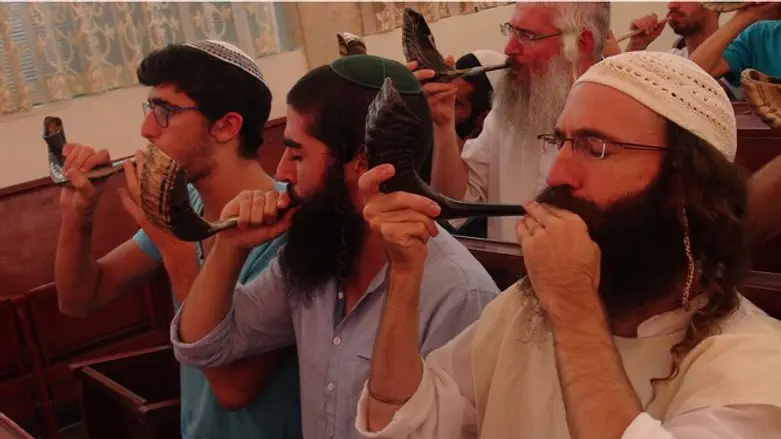
After the simultaneous applause for medical personnel and coordinated Seder night songs on balconies and porches across Israel, now it is the turn for the mass blowing of the shofar as well.
The "B'Noam" rabbinical organization is launching a new initiative, according to which on the second morning (the first day is Shabbat this year when the shofar is not blown) of Rosh Hashannah at 11 a.m., all those who blow the shofar will go out into the streets and balconies as well as outdoor prayer locations and do so at the same time all across Israel, Yisrael Hayom reported Sunday morning.
According to the organization's rabbis, "the project was born out of a huge demand from a traditional audience who want to make sure that they hear the sound of the shofar, and who fear this year that due to the coronavirus they will not be able to visit the synagogues or places of worship as usual."
Rabbi Yisrael Meir Riani, the founder of B'Noam, said that "the most important symbol on Rosh Hashannah is the blowing of the shofar. The mass blowing project addresses the need of tens of thousands all over the country, who want to hear the sound of the shofar. The people of Israel are proud to blow the shofar, which marks the beginning of the Hebrew year. The most important aspect of this project is what we lack most as a society, and that is unity."
"When all the people of Israel together hear the blowing of the shofar, everyone will unite for one wonderful moment at the starting point of the year. I am sure it will have a positive effect on the whole year and on society in Israel in general," he added.
"The initiative is intended to prevent a situation in which people have to gather [in an unsafe manner] to hear the sound of the shofar, or in which older people, who are afraid to leave the door of their homes, will be forced to give up on hearing the sound of the shofar," concluded Rabbi Riani.